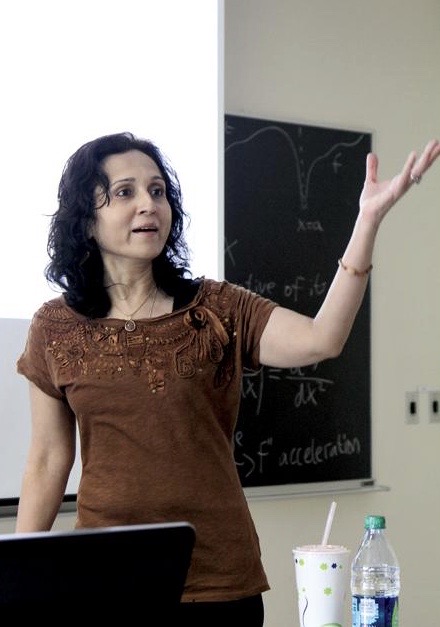Lubna Chaudhry, 54, associate professor of human development, died on Aug. 12 according to a Binghamton University Dateline announcement released Thursday.
According to the statement, Chaudhry had died after battling with a “brief illness.” At BU, Chaudhry was an affiliated faculty member with the Asian and Asian American Studies and Latin American and Caribbean Area Studies departments. Chaudhry also holds a joint title with the Women, Gender and Sexuality Studies program.
Chaudhry earned her bachelor’s and master’s degree from the University of the Punjab in Pakistan. She then went on to obtain a second master’s degree from the University of Hawai’i at Manoa. Additionally, she earned her doctorate at the University of California, Davis.
After completing her doctorate in sociocultural studies in education, Chaudhry taught at the University of Georgia, Athens. After three years of teaching, she went to live in Pakistan where she worked at the ASR Institute of Women’s Studies, a nonprofit institution dedicated to social transformation.
After her time at the ASR, she spent more than three years at the Sustainable Development Policy Institute in Islamabad, Pakistan as a research fellow where she worked on a variety of research studies, including a World Bank-funded poverty assessment of Pakistan. She also worked on a study which examined women, conflict and security.
Her articles and book chapters focused on deprived communities in Pakistan afflicted by ”structural and conflict-based violence.” After her time in Pakistan, Chaudhry joined BU and followed her focus with Pakistan by continuing fieldwork in Swat Valley, Pakistan to evaluate the effect of armed conflict on the youth there.
Chaudhry received the Chancellor’s Award for Excellence in Teaching in 2015 and was integral in creating the master of science program in human rights at BU. As the chair of the human development department in 2014, Chaudhry was the primary author of the proposal for the program that seeks to integrate students in human rights with a community-oriented approach.
Chaudhry was also a vocal activist on campus. In Nov. 2019, she wrote a guest column as co-chair of the Faculty Senate committee, calling for respect of freedom of speech and fairness by the administration during a string of protests between the College Republicans, BU’s unrecognized chapter of Turning Point USA and student protesters. In 2018, Chaudhry joined a student coalition protest at the College of Community and Public Affairs (CCPA) gala fundraiser where protesters called for transparency on money raised at the fundraiser and equality for people of color.
In the Dateline statement, Denise Yull, chair of the department of human development and an associate professor of human development, remembered her ardent activism.
“I admired Lubna as a scholar, but her activism inspired me,” Yull said. “Lubna was a founding member of FARAB, a faculty collective composed of people of color from across the University who assembled to protest a climate of racism and indifference experienced by both students and faculty of color at [BU]. Lubna stood at the frontline against racial injustice at [BU], standing shoulder to shoulder with students and faculty of color. To honor Lubna, we have to continue standing up against systemic racism.”
Stephanie Malberg, ‘19, a former student of Chaudhry, doctorate in community and public policy and adjunct lecturer for CCPA, expressed her gratitude toward Chaudhry.
“I began to refine the critical ability to question structures of power from the intersectional perspective of a woman, a parent and a non-traditional college student,” Malberg wrote. “Dr. Chaudhry has made me a better student, and she has also made me a better teacher. I am honored to call Dr. Chaudhry my adviser, my mentor and my friend.”



